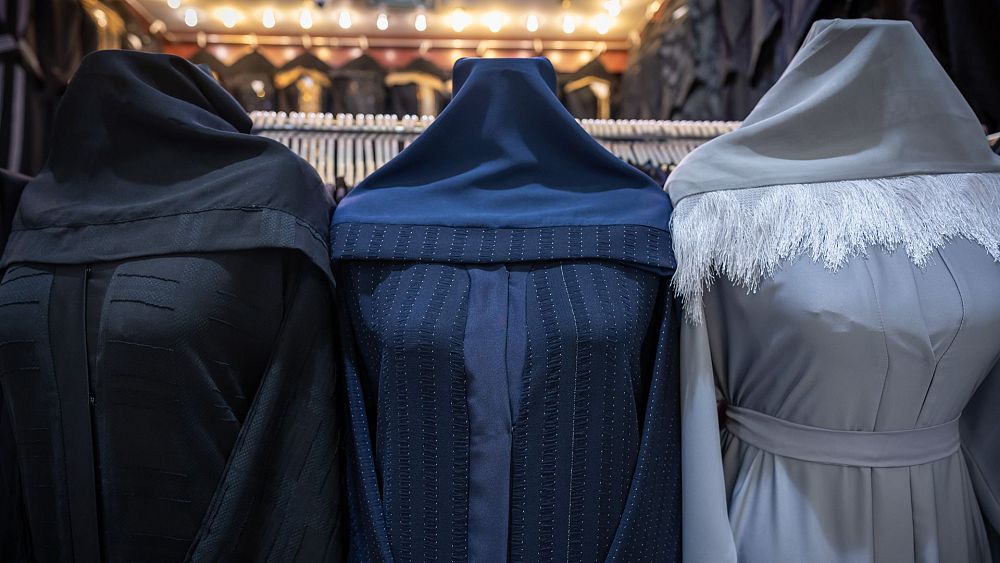French Education Minister announced that the traditional clothing known as abaya will be banned in schools in the name of secularism. Certain Muslim students wear this loose dress on top of other clothes.
Almost twenty years after the law restricting religious clothing and symbols in French schools was introduced, the debate is still not over.
“Abayas won’t be allowed anymore in schools”, France’s new education minister Gabriel Attal declared on Sunday.
The abaya is a long and loose traditional dress that covers the whole body and is worn in Maghreb and in the Gulf region. It isn’t directly associated with Islam as no text requires Muslim women to wear it.
“Standing together means being clear: the abaya has no place in our schools. Nor do other religious symbols”, said Attal.
More than 4,700 reports of breaches of secularism in schools
This decision comes as an increasing amount of schools report breaches of secularism, a very important principle in France.
“The Islamic veil […] the yarmulke or a cross of manifestly excessive dimensions” were already banned in French schools in 2004. For other garments, school directors had to decide individually if students were wearing them as a sign of faith or not. Many requested clearer rules at a national level.
“In the vast majority of cases, things will be resolved through dialogue in the first few days,” says Gabriel Attal. Schools will be able to call on “secularism teams” to support them in difficult situations so a solution can be found.
Religious clothing reports in schools rose by 150%
France’s right-wing supported this decision: “Communitarianism is a leprosy that threatens the Republic. I welcome this decision, which proves us right”, said Eric Ciotti, president of Les Républicains right-wing party.
This decision prompted outrage from the left-wing opposition, Clémentine Autain, French deputy at La France Insoumise far-left party said this proposition was “unconstitutional”, “contrary to the founding principles of secularism” and “symptomatic of the obsessive rejection of Muslims”.
A couple of voices coming from the left-wing supported this ban, with deputy Jérôme Guedj saying: “As soon as the abaya or qamis are worn in an ostentatious manner, they should be banned, as the 2004 law allows, without any major difficulties.”
The French Council of the Muslim Faith (CFCM) rapidly condemned this decision saying the abaya is not a religious garment but a form of fashion.





















Discussion about this post